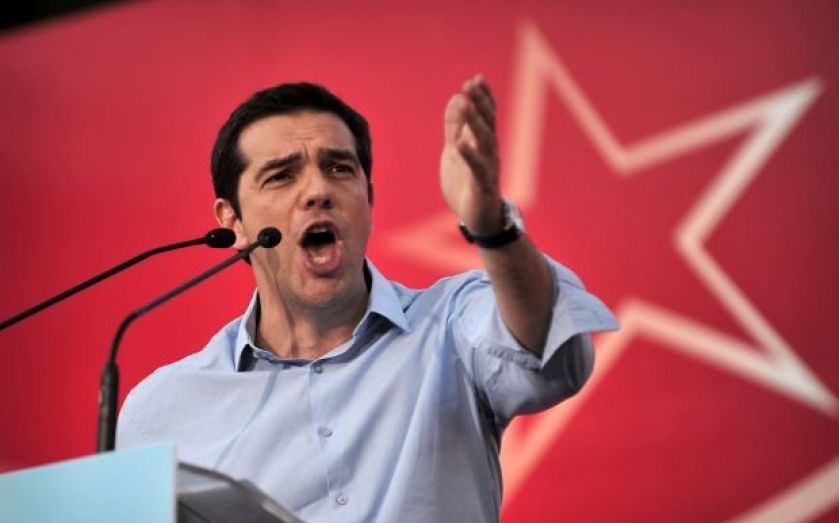Greece election 2015: Who is Alexis Tsipras and how did he become so popular?

At age 40, he's managed to deal such a blow to economic confidence in the Eurozone that the currency fell to its lowest value against the dollar in 11 years last night.
Alexis Tsipras was sworn in as the new Prime Minister of Greece yesterday evening, and will now begin his long-term mission to bring the country out of austerity.
Head of Greece's new governing party Coalition of the Radical Left (SYRIZA), he holds the hopes of a nation in his hands – he has vowed to renegotiate the country's €240bn (£179bn) bailout package with the Troika (the European Union, International Monetary Fund and the European Central Bank), but whether he will be successful, and whether Greece will now be able to stay in the Eurozone, remains to be determined.
Tsipras came along at just the right time in terms of gaining the backing of the nation – feeling disheartened by the huge youth unemployment and reduction of living standards they have been subjected to as a result of austerity measures, the prospect of someone who would work to reverse that rather than continue with the process has proved too appealing for Greeks to resist.
Syriza is formed from a coalition of left-wing and radical left-wing parties, and Tsipras became head of it in 2009. It was only in 2012, however, that it started to pose a real threat to the New Democracy, which was in power until yesterday's snap elections.
So who is Tsipras, and how did he arrive at this point? Even as a teenager, the Athens-born leader was heavily involved in politics – he joined the Young Communists Society in the 1980s and by 1991 at the age of 17 organised the occupation of his high school in protest at education reforms. When he went to the National Technical University of Athens to study civil engineering, his interest continued.
It was not until 2009 and his appointment as head of Syriza that his political career really took off, however. This made him the youngest ever political leader at 34, and the fact that only six years later he has gone on to become Prime Minister indicates his competence at selling an idea to a nation.
He has been described as having a no-fear approach to his anti-austerity ambition, and this attitude meant that by the 2012 general election he had already won 27 per cent of votes for the party, making Syriza the second biggest party in the Greek parliament.